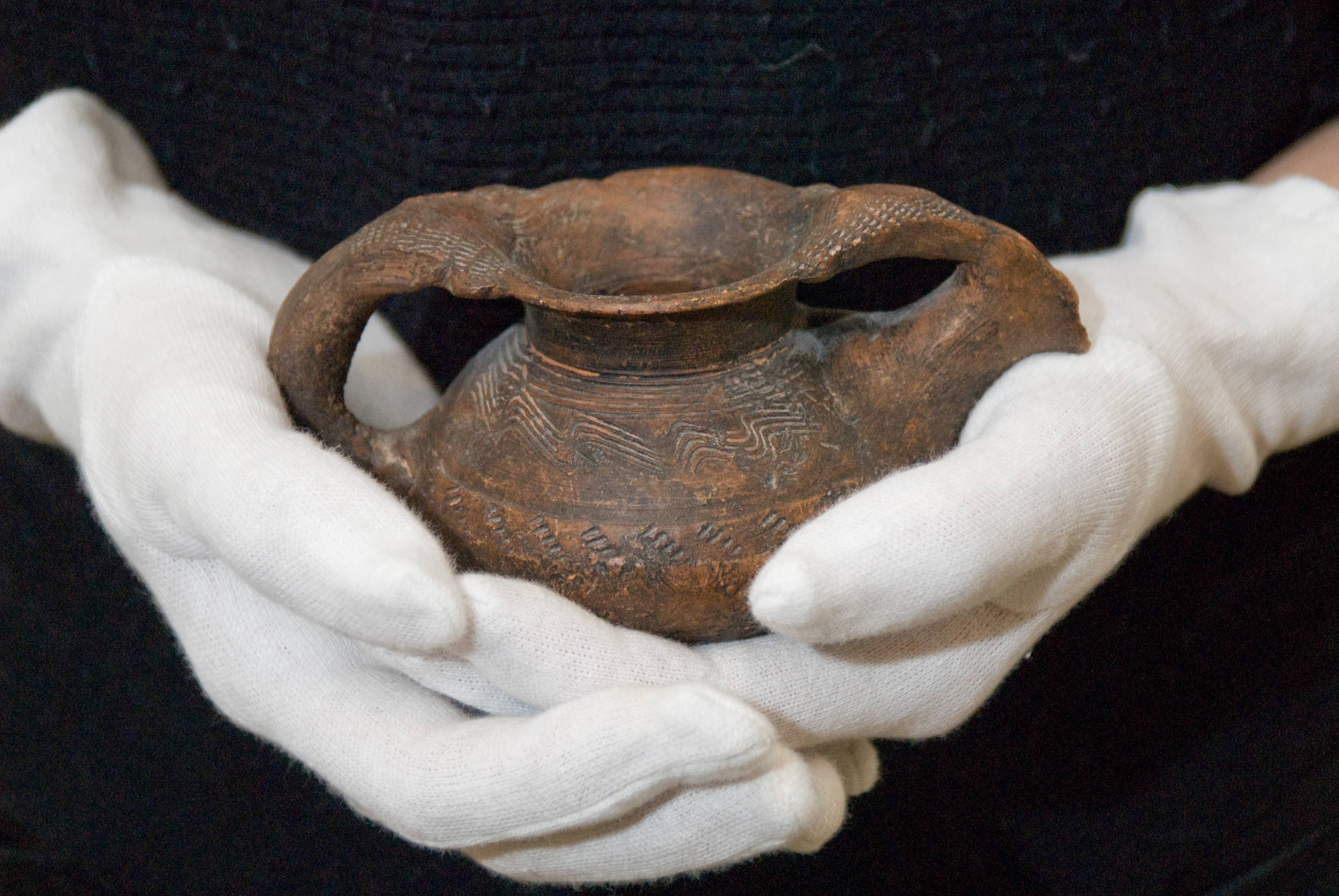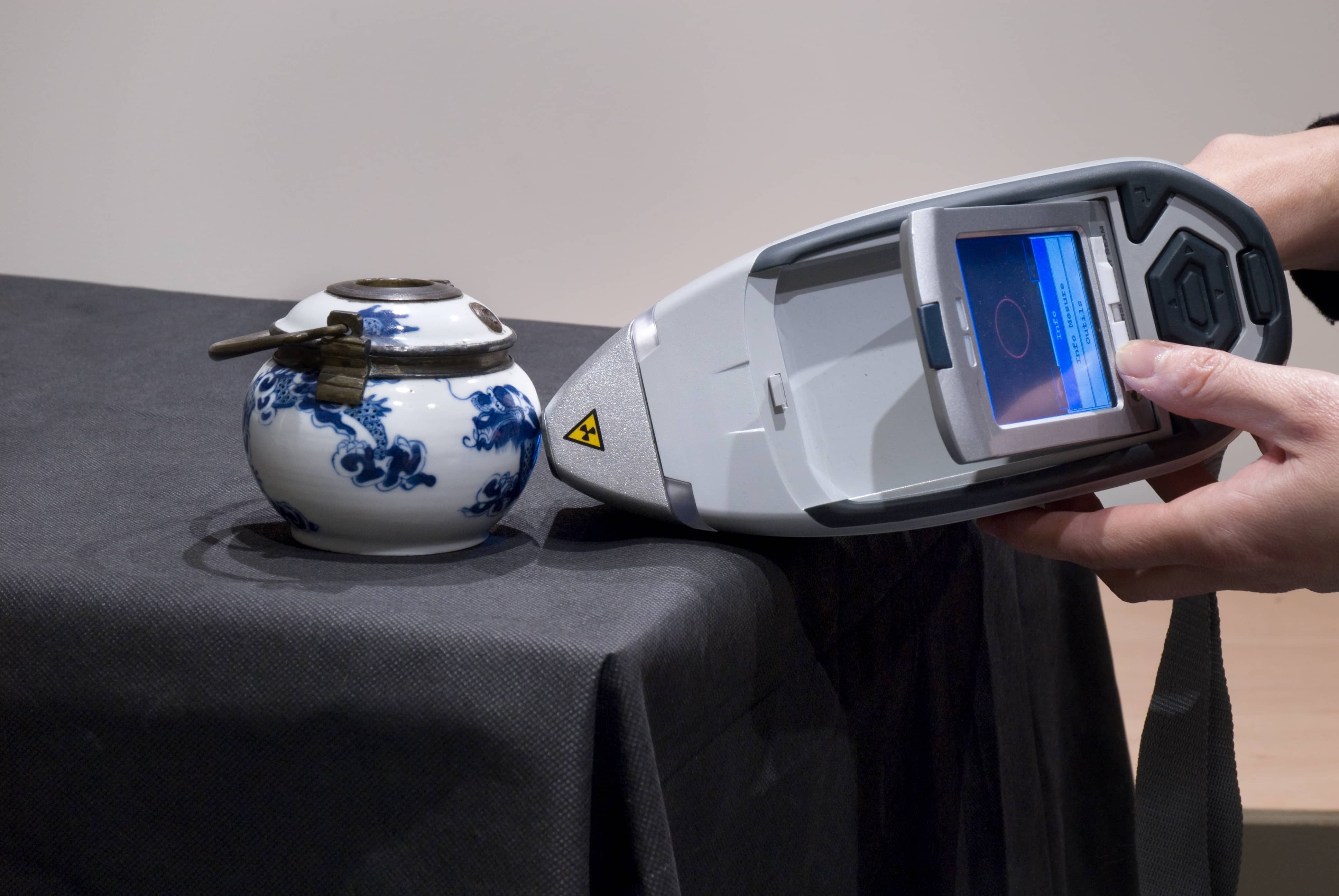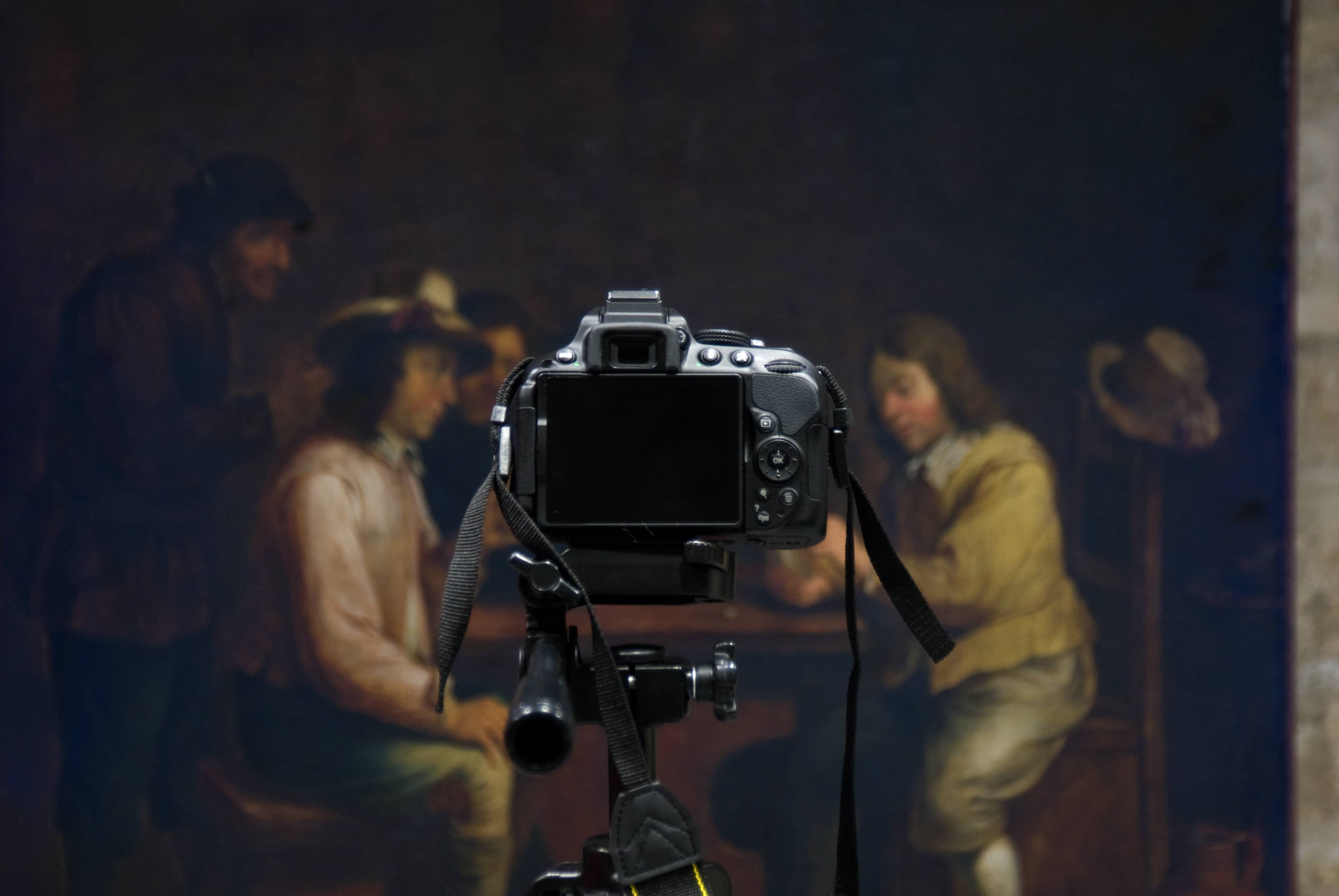We adapt our investigations according to the materiality of the artwork and your questions.
Painting and graphic arts
Photography, raking light images, transmitted light photography. UV light fluorescence, X-Rays, infrared reflectography. Those images allow us to detect possible restorations and repaints, modifications and possible underdrawings. They give information about artworks condition, and they are useful for orientating decisions on chemical analysis.
Without samples (non-destructive analysis) : X-Ray Fluorescence spectroscopy (XRF). Determines the composition of mineral pigments.
With micro-samples : Fourier Transform Infrared Spectroscopy (FT-IR), Raman spectroscopy, Scanning Electron Microscopy (SEM), X-Ray Diffraction (XRD).
These analyzes determine composition of pigments, binders and give information on paint layer stratigraphy.
Métal
Direct light and raking light photography, UV light Fluorescence, Reflectance Transformation Imaging (RTI), X-Rays.
Without samples (non-destructive analysis) : X-Ray Fluorescence spectroscopy (XRF) , determine the nature of metal alloys, Fourier Transform Infrared spectroscopy (FT-IR).
With samples : Scanning Electron Microscopy (SEM), Thermoluminescence dating (TL) if some residues of casting core remain inside the metal sculpture, this exam allows dating.
Ceramic and terracotta
Direct light and raking light photography, UV light Fluorescence, Reflectance Transformation Imaging (RTI).
Without sample (non-destructive analysis) : X-Ray Fluorescence spectroscopy (XRF).
With sample : Scanning Electron Microscopy (SEM), Thermoluminescence dating (TL).
Wood
Direct light and raking light photography, UV light Fluorescence, Reflectance Transformation Imaging (RTI), X-Rays.
Without samples (non-destructive analysis) : X-Ray Fluorescence spectroscopy (XRF) for polychrome sculpture.
With sample : Scanning Electron Microscopy (SEM), Fourier Transform Infrared Spectroscopy (FT-IR).


